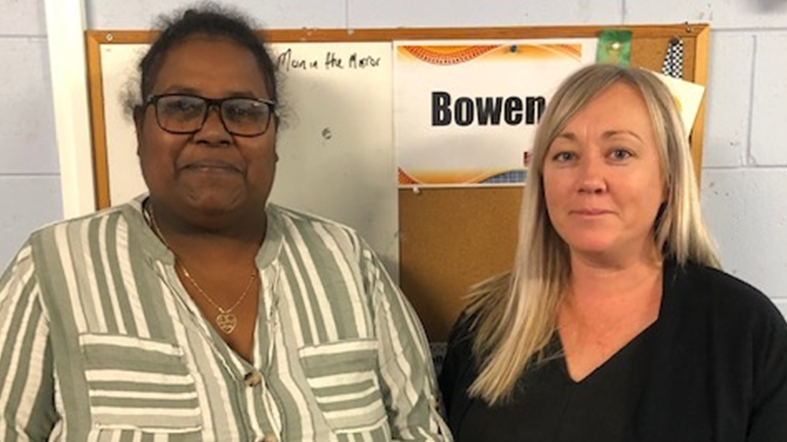Due to an accident, Catherine has a history of severe depression, post-traumatic stress disorder (PTSD), anxiety, insulin-dependent diabetes mellitus II (IDDM II), and vision problems which affect her ability to make and attend medical and psychiatric appointments.
Initially, Catherine was referred to the IOW program for transport only. After many conversations with her IOW team and Indigenous Outreach Worker Jeanon Andersen, the team realised that Catherine required more intensive, sensitive support in managing her chronic health conditions.
Catherine confided in her IOW team and shared that she was frightened of all authority figures – including doctors, nurses, and even her therapist. She had severe agoraphobia that affected every aspect of her life.
The IOW team became Catherine’s advocate and supported her during many medical appointments.
Jeanon said that the team first ensured Catherine had an up-to-date care plan, with referrals to appropriate specialists set in place.
“Due to Catherine’s mental health illnesses and the subsequent prescribed medication, her short-term memory was affected. Our team would ensure that we kept a schedule of her appointments and rang her the day before, and the day of, the appointment to remind her,” said Jeanon.
“We were by Catherine’s side through every step of her appointments – from holding her hand when we entered the building and arriving early to have a cup of tea and discuss her fears, to writing down her questions and answers so she had all the information from the specialist or therapist when back at home.
“This allowed Catherine to process the information slowly, in her own time, giving her greater confidence and autonomy over her own health care needs”.
Following Catherine’s ocular accident, she now also struggles with reading, writing, and comprehension.
“The IOW team were successful in working with Catherine to ensure her disability claim was processed and accepted,” said Jeanon.
“We took the burden off her by ensuring we collated all the medical evidence required.
“Our team was supported in this process by Mackay Hospital and Health Services, private specialists and their teams, and Centrelink”.
Catherine was invited to a women’s group by other Girudala workers – she rarely attended at first, but eventually she started attending the group semi-regularly.
This was a huge success in her steps to overcoming her anxiety-led agoraphobia. Her therapist was particularly happy that the team was able to encourage Catherine to attend these groups, as it was hugely healing to her.
The Girudala IOW team strongly believe in holistic care, and that working with a team and the wider community is the best way to ensure a client’s best outcome.
After three years on the program, successful cognitive-based therapies, exposure therapies, and two surgeries, Catherine is now living with her husband independently.
“She is able to manage her own health and chronic conditions, and has a newfound confidence,” Jeanon said.
“Catherine is a much-loved member of the community and attends many local events.
“She has now been discharged from the IOW program, and we are all extremely proud of her”.
*The patient’s name has been changed to protect her privacy.



